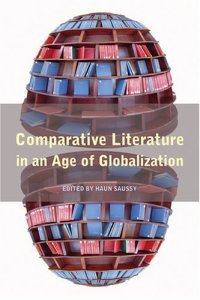
Ebook: Comparative Literature in an Age of Globalization
Author: Haun Saussy
- Tags: Criticism & Theory, History & Criticism, Literature & Fiction, European, Eastern, British & Irish, French, German, Italian, Scandinavian, Spanish & Portuguese, Regional & Cultural, History & Criticism, Literature & Fiction, Writing, Academic & Commercial, Children’s Literature, Editing, Fiction, Journalism & Nonfiction, Newspapers & Magazines, Play & Scriptwriting, Poetry, Technical, Travel, Writing Skills, Erotica, Mystery, Romance, Science Fiction & Fantasy, Writing Research & Publishing Guides, Reference, Globalization, S
- Year: 2006
- Publisher: Johns Hopkins University Press
- Edition: 1
- Language: English
- pdf
As an academic discipline built upon Enlightenment thought and a cosmopolitan worldview―not grounded in the literary tradition of any single language or nation―comparative literature has benefited from regular reexamination of its basic principles and practices. The American Comparative Literature Association 1993 report on the state of the discipline, prepared under the leadership of Charles Bernheimer, focused on the influence of multiculturalism as a concept transforming literary and cultural studies. That report and the vigorous responses it generated, published together as Comparative Literature in the Age of Multiculturalism, offered a comprehensive survey of comparative criticism in the 1990s.
In the first decade of the twenty-first century, globalization has emerged as a defining paradigm in nearly every area of human activity. This latest report from the ACLA demonstrates that comparative critical strategies today can provide unique insights into the world's changing―and, increasingly, colliding―cultures. Incorporating an even wider range of voices than had its predecessor, the report examines how the condition (or myth) of globalization in all its modes and moods, affirms or undercuts the intuitions of comparative literature; how world literatures whether seen as utopian project or as classroom practice, intersect with the canons and interpretive styles of national literatures, and how material conditions of practice such as language, media, history, gender, and culture appear under the conditions of the present moment.
Responding to the frequent attacks against contemporary literary studies, Comparative Literature in an Age of Globalization establishes the continuing vitality of the discipline and its rigorous intellectual engagement with the issues facing today's global society.
Contributors: Emily Apter, Christopher Braider, Marshall Brown, Jonathan Culler, David Damrosch, Caroline Eckhardt, Caryl Emerson, David Ferris, Gail Finney, Roland Greene, Linda Hutcheon, Djelal Kadir, Françoise Lionnet, Fedwa Malti-Douglas, Richard Rorty, Haun Saussy, Katie Trumpener, Steven Ungar, Zhang Longxi